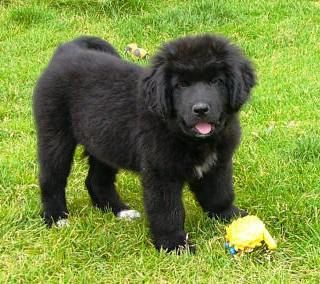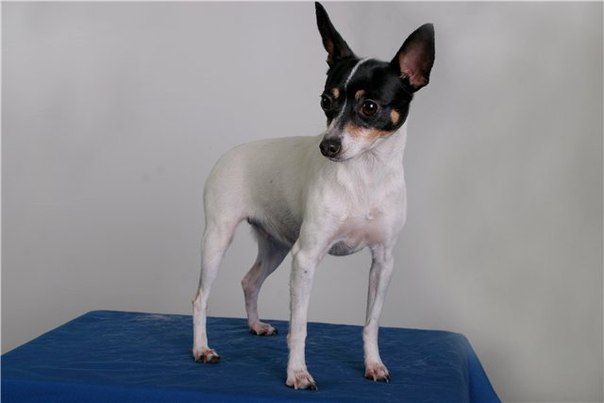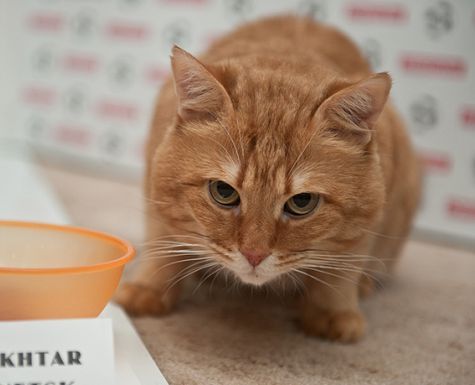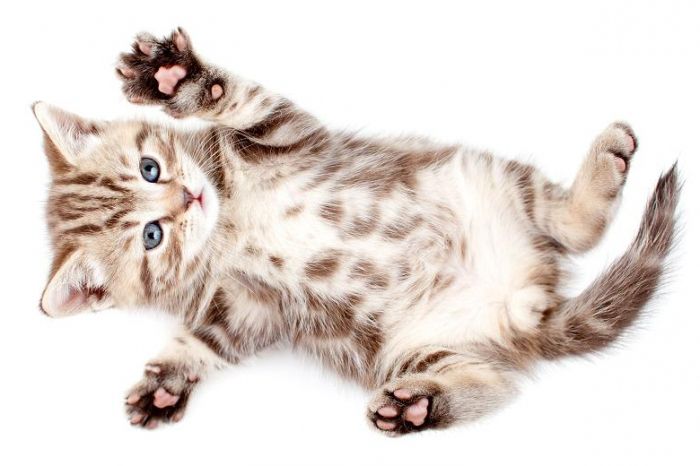Interesting facts about animals in England
It's no secret that the British love their pets to bits and are willing to do anything to make them happy. But is their love really that strong? It's worth looking for answers to this question.
Today, the majority of the UK population (24.2 million) owns a pet. Especially cats and cats are popular among them, since most people live alone and very independently of each other. People with a similar lifestyle are called “independent pets” - independent pets, implying in the name that these owners must have pets. There are about 8,000 million cats in the UK. In addition, other popular pets for British people are dogs, birds, rabbits, fish, guinea pigs and hamsters.
If you decide to take a walk around the UK, you are sure to meet hundreds of new “faces” and smiles of cats, showing that it is not surprising that the Cheshire Cat from the book “Alice in Wonderland” became an obvious hero invented by the writer Lewis Carroll. English cats really deserve to smile. It is a known fact that the British spend almost half of their earnings on their pets per year, and over the past 5 years, expenses on animals have increased by 25%.
The relevance of studying the topic of British pets today is determined by the fact that this topic is inextricably linked with everyday life and provides new outlets for studying the everyday life of the British. There is no need to talk about the importance and popularity of the history of everyday life here: the way of life, details and features of everyday life and culture are extremely important for understanding both individual moments and the people as a whole.
For an Englishman, favorite pets are not just a hobby or fun, but a way of life. This is one of the ways to demonstrate your tolerance, individuality and attract attention.
Therefore, it will be easier for a Russian person to find contact with an Englishman not by talking about the weather, but about their favorites in the house. To do this, you must have an understanding of these animals.
Purpose of the work: to determine the meaning and importance of pets in the life of the British.
The object of the study is the history of England, features, traditions and customs of life in Great Britain.
The subject of the study is the pets of the British.
The tasks can be formulated as follows:
- analyze the literature on this issue;
- identify the etymology of the words “animal” and “pet”;
- consider interesting facts about animals in England;
- consider and identify unique features about English pets;
- identify the meaning and importance of pets in the life of the British.
MAIN PART I. THE BRITISH AND THEIR DOMESTIC ANIMALS
In colloquial English, the following expressions are common in use: pet name - pet name, pet son - beloved son, pet subject - favorite topic, pet corn - pet peeve (in a humorous form), teacher's pet - teacher's pet, pet bank - pet bank (the best bank where you can keep your savings in an account). And among young people you can hear how often the English use the following phrases in communication: Don’t worry, pet. - Don't worry, honey; What a perfect pet of a dress! -What a wonderful dress! I am in pet with you! – I’m angry/angry with you! The most amazing thing is that pet owners are usually called pet parents (literally, pet parents).
According to Wikipedia, pets benefit people either as a source of material goods and services, or as companions that brighten up their loneliness. Some domestic animals bring direct material benefits to humans, for example, by being a source of food, materials, or performing work functions (carriage of goods, security). The second large category is companion animals that occupy leisure time, provide pleasure and with whom you can communicate. For urban residents, the concept of “pets” is more often associated with the second category, that is, “pets”. Pets can live in special premises and directly in a person’s home.
Domestic animals evolved from wild animals living in the wild. Many wild animals can be tamed, especially when young, and even kept at home. It sometimes happens that wild animals are easily tamed, but have difficulty reproducing in captivity. The number of domestic animals is relatively small relative to the total number of species in the animal world. Thus, there are more than two thousand species in the world, but there are only about 40 species of domestic animals.
Thanks to painstaking selection work, in the last two centuries some of the original animals have changed beyond recognition. An English bull reaches up to 5070 pounds of weight. English pigs reach 1012 pounds in weight in one year (for comparison, to obtain such weight, a Russian pig needs to be raised for 34 years). There is nothing to say about English heavy-duty horses; they have long since gained worldwide fame. An interesting example of changes in the properties of domestic animals depending on human needs is the Merino sheep. The selection of its coat was determined by changes in the demand for different types of wool. Over the past decades, sheep farmers have tried to change the length, fineness and other characteristics of Merino wool.
INTERESTING FACTS ABOUT ANIMALS IN ENGLAND
A country where dogs don’t bark and children don’t cry—that’s what I sometimes want to call England based on first impressions. Later you realize that these are similar consequences of different causes. One should not think that the dogs here are too trained to bark, and the children are too cared for to have a reason to cry. It would be more accurate to say that the opposite is true.
The most popular pets are known for their loyalty, playfulness, good looks and, as is often the case, their ability to sing or sing along to sounds spoken by their owner. Thus, it seems that pets provide their owners with excellent opportunities for improving health: helping to relieve stress, doing morning exercises in the morning, playing with animals, breathing fresh air and mutual communication. It is a known fact that those people who have pets have a lower risk of heart disease and live an order of magnitude longer than those who do not have pets at home.
When looking at a series of hotels providing holidays to tourists, it turned out that in the UK there are centers offering services such as “therapy animals”. The person is given several sessions, during which fatigue is relieved: he walks and plays with the dog, temporarily becoming its “temporary owner”. As a rule, after such treatment, people who have undergone therapy are sure to have pets.
If domestic animals - the silent friends of the English - were suddenly endowed with the gift of speech, they would have nothing to complain about. In any case, it seems that elderly people in England are much more likely to live out their lives in poverty than cats and dogs. The British are kinder and more merciful to horses, dogs and cats.
As a result, in order to know the English, it is apparently better to be a zoologist than a psychologist. In England, after a heavy snowfall, the announcer will not fail to announce on the radio: “Don’t forget to feed the birds. It became hard for them to get seeds. By all means, throw about bread crumbs around your house” (“Don’t forget that it has become more difficult for birds to get food. Scatter bread crumbs around your house”). Closer to the forests around London, tourists can see many bird feeders and squirrels while sightseeing. However, in a winter storm, hardly anyone would think of announcing on the radio: “Remember the homeless under Charing Cross Bridge.”





No comments here yet.